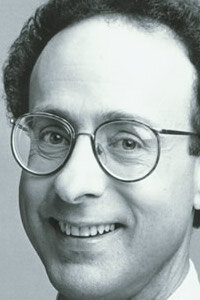The small Alabama town of Bay Minette has come up with a rather peculiar plan of giving convicted non-violent offenders a choice between incarceration and paying a fine or attending church every week for a year, what some are calling choosing between “lockup and the Lord” or between “jail and Jesus.”
Local executive and judicial officials call the program Operation ROC (Restore Our Community), which includes an estimated 56 churches in North Baldwin County participating.
Because Operation ROC (Is there an implied connection with the Christian hymn, “Rock of Ages?”) provides only two opinions (incarceration or church) and no reasonable secular alternative, this program raises not only First Amendment Constitutional issues, but poses serious questions regarding the place and imposition of religion in our nation.
Let up for the moment set aside Constitutional considerations (though this case reeks of governmental imposition and enforcement of religion, in this case Christian denominations, and the perpetuation of Christian privilege and hegemony).
In terms of behavior modification strategies, while positive reinforcement shows some of the greatest promise, punishments (negative conditions) are often introduced to weaken an undesirable behavior. For example, when students exhibit undesirable behaviors within an educational setting (e.g., not coming prepared to class, smoking in the bathrooms, pulling another student’s hair, shouting racist epithets), some of the most-often used behavioral modification punishment techniques include detention (remaining in the classroom or principal’s office over recess or lunch breaks, after school, or on Saturdays).
If these consequences prove successful by eliminating the undesirable behavior(s), students will not be held liable to repeat these measures, for by this time in the student’s experiential visual library, the sites of punishment (the virtually empty classroom, principal’s office, etc.) become decoded as threatening or perilous sites not to be revisited.
In like fashion, if an individual who commits a crime is faced with a choice between jail or house of worship, both sites become decoded as sites of punishment, both of which, if the punishment is “effective,” will be seen as threatening or perilous sites not be revisited.
The actions taken in Alabama pose serious critical questions. Do we as a society wish to frame religious services as a form of punishment? Does attending religious services, in fact, determine lesser degrees of criminality? On the other hand, does resistance to or choosing not to attend religious services increase chances of criminality?
What if the person given the choice between jail or house of worship does not believe in any organized faith, or defines as atheist or agnostic? Can that person attend a group for non-believers? Or if the person identifies as, say, Muslim, Jewish, Jain, Buddhist, Hindu, or member of another faith community not included in the 56 member houses of worship involved in this “program?” Can that person attend a site outside the 56? Or will that individual automatically go directly to jail without being provided a get-out-of-jail-free option?
If the criminal justice system considers options to incarceration, secular alternatives must be placed on the table. What about the offender working with groups that focus on bullying prevention in schools and society? What about serving as volunteer fire fighters? What about serving as city volunteers to construct parks and playgrounds, help repair roadways, volunteer with organizations that build and repair housing for working class and poor people? What about helping out charitable organizations like the United Way? These options will assist the convicted offender and will go a long way in helping the community.
Our criminal justice is indeed in serious need of overhaul and reform. The recent execution of Troy Davis with so much unresolved doubt concerning his guilt proves a case in point. And the disproportionality of People of Color incarcerated, and the differential sentence structure between White people and People of Color convicted of similar crimes points out in clear relief that our system of “justice” is by no means equitable.
The measures passed in Bay Minette, Alabama bring us no closer to filling the equity gap. In fact, the “program” only widens this gap into an abyss.

Dr. Warren J. Blumenfeld is author The What, The So What, and The Now What of Social Justice Education (Peter Lang Publishers), and Warren’s Words: Smart Commentary on Social Justice (Purple Press); editor of Homophobia: How We All Pay the Price (Beacon Press), co-author with Diane Raymond of Looking at Gay and Lesbian Life (Beacon Press), and co-editor of Readings for Diversity and Social Justice (Routledge) and Investigating Christian Privilege and Religious Oppression in the United States (Sense).
